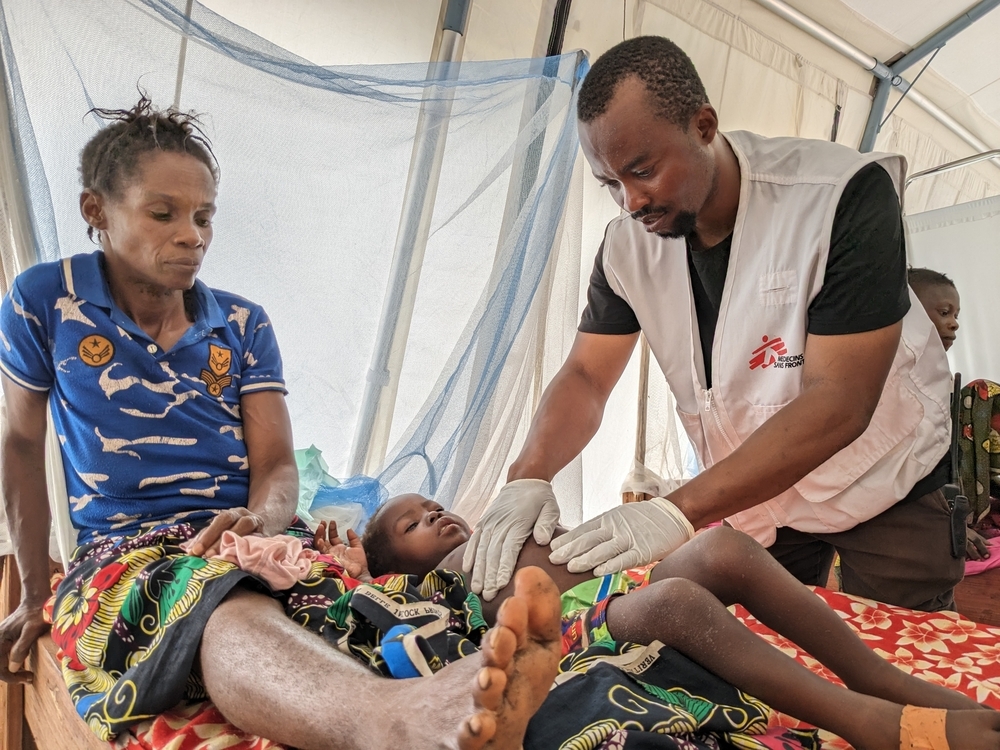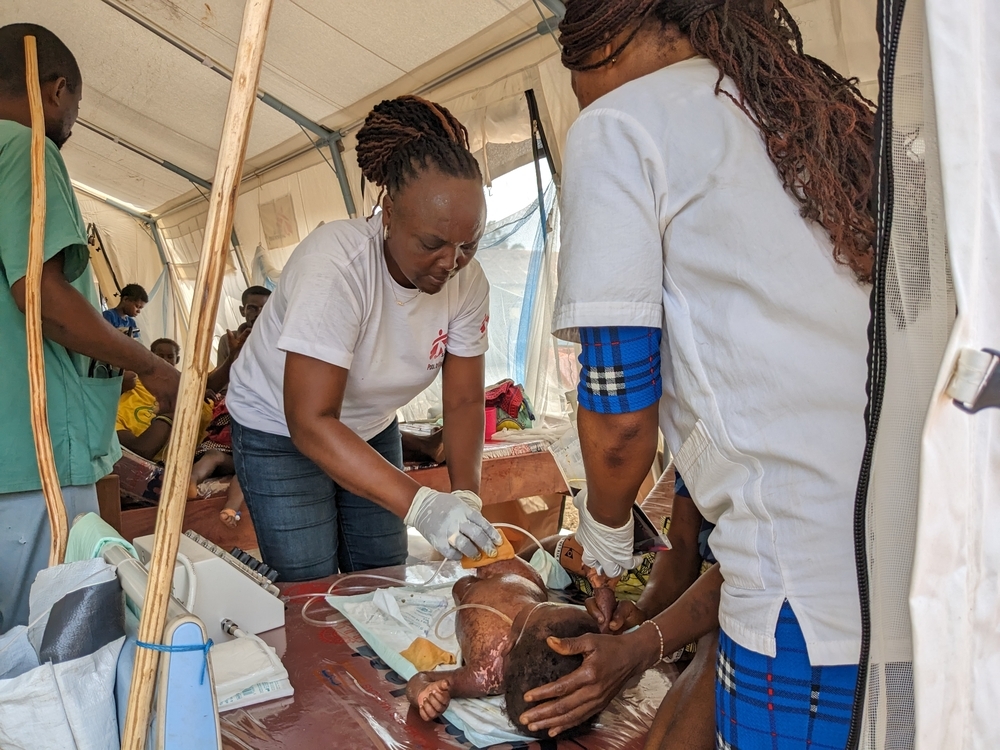MSF is responding to a new measles outbreak in DR Congo, where ensuring complete vaccination in remote equatorial forests is a formidable logistical challenge.
Doctors Without Borders/Médecins Sans Frontières(MSF) teams in Democratic Republic of Congo (DRC) are responding to a new measles outbreak in the Ingende health zone in Equateur province by treating and vaccinating children, achieving a vaccination rate of nearly 100 percent for children between 6 months and 9 years old.
Logistical and geographic challenges
Given the shortcomings of the 2023 vaccination campaign, measles cases surged again in 2024. MSF intervened to support the Ministry of Health by ensuring optimal vaccination coverage and supporting patient care in two hospitals and four health centers.
“Reaching remote areas in the equatorial forest is a logistical challenge,” said Jean-Jacques Stéphane Nfon Dibie, coordinator of an MSF mobile emergency team in DRC.
“The Ingende zone has 18 health areas, more than half of which are hard to reach,” Dibie explained. “Local health authorities lack the logistical resources to cover all areas. Vaccines must be kept refrigerated, so transporting them on foot is often not possible. We’ve deployed motorcycles and motorized pirogues [a type of canoe] to ensure every health area is reached. This is essential for the success of vaccination campaigns.”
Involving communities in measles response


In addition to logistical support, our teams have focused on involving all communities in our measles response, especially indigenous people living in remote areas who were previously under-involved
“In some communities, this led to frustration and mistrust of health campaigns,” explained Dr. Thomas Holebanga, who leads the MSF intervention in Ingende. “No one should be left out when it comes to measles, as this risks the virus continuing to spread. Ensuring every community is aware of the disease and is involved in its treatment and vaccination [campaign] was our priority, and it paid off.”
Organized in two phases between April 24 and May 13, MSF’s vaccination campaign reached 62,645 children aged 6 months to 9 years old across the 18 health areas within Ingende, achieving nearly 100-percent coverage. In addition to the measles vaccine, 11,740 children were vaccinated for diphtheria, tetanus, whooping cough, hepatitis B, haemophilus influenzae type B, and pneumococcus, using pentavalent and PCV13 vaccines.
Our teams also treated 649 children with measles and over 1,000 children with malaria or severe acute malnutrition. The team rehabilitated a borehole used to access water that had been nonfunctional for over six months.
The urgent need to improve measles control
Measles epidemics have persisted for years in DRC, with high fatality rates due to inadequate routine vaccination and supplementary immunization activities. In 2023, over 300,000 measles cases were recorded, resulting in nearly 6,000 deaths.
“The security and humanitarian challenges in DRC, particularly in the east, must not overshadow the critical need to combat measles,” said Dibie. “Measles remains a mass killer and the response to this disease represents the majority of MSF’s emergency interventions in the country. It’s vital to mobilize all efforts to strengthen the response, from routine vaccination to supplementary immunization activity campaigns. It’s a difficult but crucial battle to save thousands of children.”
In 2023, MSF responded to several measles outbreaks in the DRC, vaccinating over 1.6 million children and treating 46,348 patients.
-
Related:
- DRC
- Measles
- MSF in DRC












